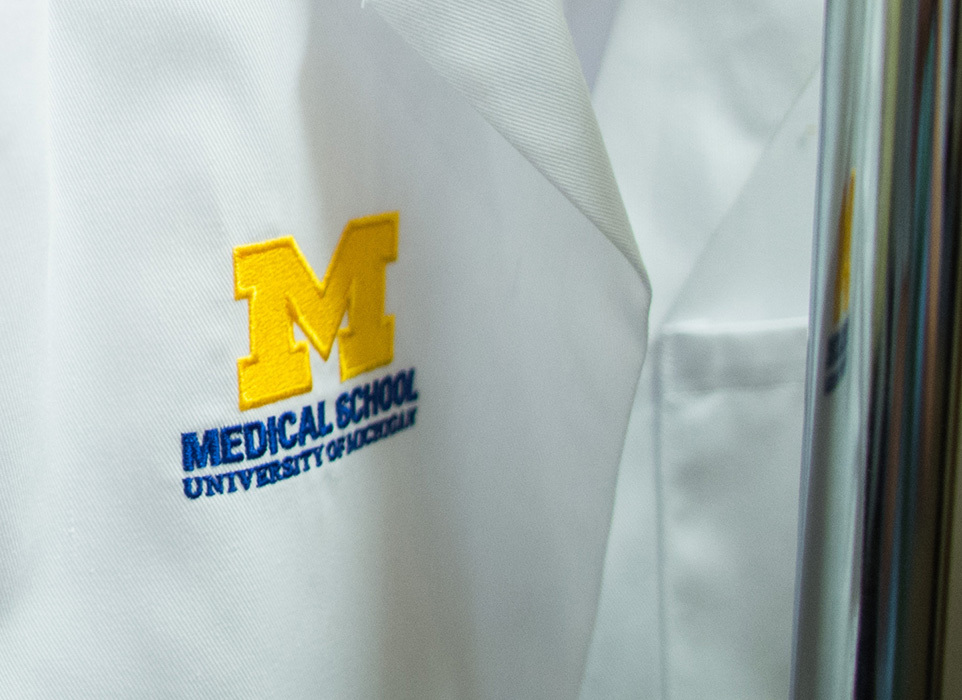
830 N. University Avenue
Ann Arbor, MI 48109
Available to mentor

After earning his BS at the University of Georgia, MS at the Florida State University, and PhD at the University of Texas at Austin, Dr. Cartee completed his postdoctoral training at Washington University School of Medicine in St. Louis, under the mentorship of John Holloszy. Dr. Cartee then joined the faculty at the University of Wisconsin-Madison as an assistant professor. He moved through the ranks to become a professor and Chair in the Department of Kinesiology, with an affiliate appointment in the Interdepartmental Graduate Program in Nutritional Sciences. He subsequently joined the faculty at the University of Michigan, with his primary appointment as a professor in the School of Kinesiology, where he currently serves as the Associate Dean for Research. He also has affiliate appointments in Molecular and Integrative Physiology and the Institute of Gerontology. His research has been supported by the NIH as a PI since 1994. He has also served as the PI of grants from various organizations, including the Diabetes Education and Research Foundation, the American Federation for Aging Research, and the American College of Sports Medicine Foundation.
Dr. Cartee is a fellow in the American College of Sports Medicine (ACSM), and a fellow of the National Academy of Kinesiology. He received a Research Fellowship from the Japan Society for the Promotion of Science, and was a Wenner-Gren Center Visiting Scientist at the Karolinska Institute in Stockholm, Sweden. He is a recipient of the ACSM Citation Award that recognizes an individual or group who has made significant and important contributions to sports medicine and/or the exercise sciences. He is an Honor Inductee of the Department of Kinesiology at the University of Texas at Austin. He has been selected to present several prestigious lectureships, including the 13th Annual Piro P. Foa Endowed Lectureship at Wayne State University, the 7th Annual Gary Hunter Award at the University of Alabama at Birmingham, and the Montoye-Nagle Lecture at the University of Wisconsin-Madison. He also was the Southeastern ACSM Regional Chapter Invited Lecture Tour Speaker.
-
Postdoctoral TrainingWashington University in St. Louis School of Medicine, Applied Physiology, 1988
-
PhDUniversity of Texas Austin, United States, 1985
-
MSFlorida State University, Tallahassee, 1981
-
BSUniversity of Georgia, Athens, 1979
-
Center MemberCaswell Diabetes Institute
My research is focused on elucidating the processes that regulate glucose transport in skeletal muscle, especially in the context of physiological conditions including exercise, diet (moderate calorie restriction; high fat diet), and aging. My research has evaluated skeletal muscle glucose transport in rodent models under in vivo conditions, in isolated tissue preparations, and in single myofibers. My research has included assessment of the roles of key insulin signaling proteins in regulating glucose transport in response to exercise, dietary manipulations, and aging.
-
Kwak SE, Wang H, Pan X, Duan D, Cartee GD. FASEB J, 2024 Nov 30; 38 (22): e70176Journal ArticleGenetic reduction of skeletal muscle glycogen synthase 1 abundance reveals that the refeeding-induced reversal of elevated insulin-stimulated glucose uptake after exercise is not attributable to achieving a high muscle glycogen concentration.
DOI:10.1096/fj.202401859R PMID: 39548965 -
Cartee GD. Nat Metab, 2024 Oct; 6 (10): 1852 - 1853.Journal ArticleExercise inhibits cellular senescence in pancreatic islets.
DOI:10.1038/s42255-024-01132-6 PMID: 39317750 -
Wang H, Kwak SE, Zheng A, Arias EB, Pan X, Duan D, Cartee GD. Am J Physiol Endocrinol Metab, 2024 Jun 1; 326 (6): E807 - E818.Journal ArticlePhosphorylation of AS160-serine 704 is not essential for exercise-increase in insulin-stimulated glucose uptake by skeletal muscles from female or male rats.
DOI:10.1152/ajpendo.00010.2024 PMID: 38656130 -
Kwak SE, Zheng A, Arias EB, Wang H, Pan X, Yue Y, Duan D, Cartee GD. PLoS One, 2024 19 (1): e0295964Journal ArticleA novel genetic model provides a unique perspective on the relationship between postexercise glycogen concentration and increases in the abundance of key metabolic proteins after acute exercise.
DOI:10.1371/journal.pone.0295964 PMID: 38289946 -
Wang H, Zheng A, Thorley D, Arias EB, Cartee GD. Appl Physiol Nutr Metab, 2024 May 1; 49 (5): 614 - 625.Journal ArticleIndependent and combined effects of calorie restriction and AICAR on glucose uptake and insulin signaling in skeletal muscles from 24-month-old female and male rats.
DOI:10.1139/apnm-2023-0522 PMID: 38181403 -
Wang H, Zheng A, Arias EB, Kwak SE, Pan X, Duan D, Cartee GD. FASEB J, 2023 Jul; 37 (7): e23021Journal ArticleAS160 expression, but not AS160 Serine-588, Threonine-642, and Serine-704 phosphorylation, is essential for elevated insulin-stimulated glucose uptake by skeletal muscle from female rats after acute exercise.
DOI:10.1096/fj.202300282RR PMID: 37289137 -
WANG H, ZHENG A, ARIAS EB, KWAK S, PAN X, YUE Y, DUAN D, CARTEE GD. Diabetes, 2023 Jun 20; 72 (Supplement_1):Journal Article587-P: AS160 Expression, but Not AS160 Serine-588, Threonine-642, and Serine-704 Phosphorylation, Is Essential for Elevated Insulin-Stimulated Glucose Uptake by Skeletal Muscle from Female Rats after Acute Exercise
DOI:10.2337/db23-587-p -
KWAK S, ZHENG A, ARIAS EB, WANG H, PAN X, DUAN D, YUE Y, CARTEE GD. Diabetes, 2023 Jun 20; 72 (Supplement_1):Journal Article588-P: Probing the Role of Muscle Glycogen Resynthesis on Postexercise AMPK Activation and Metabolic Protein Abundance Using a Novel Genetic Model
DOI:10.2337/db23-588-p